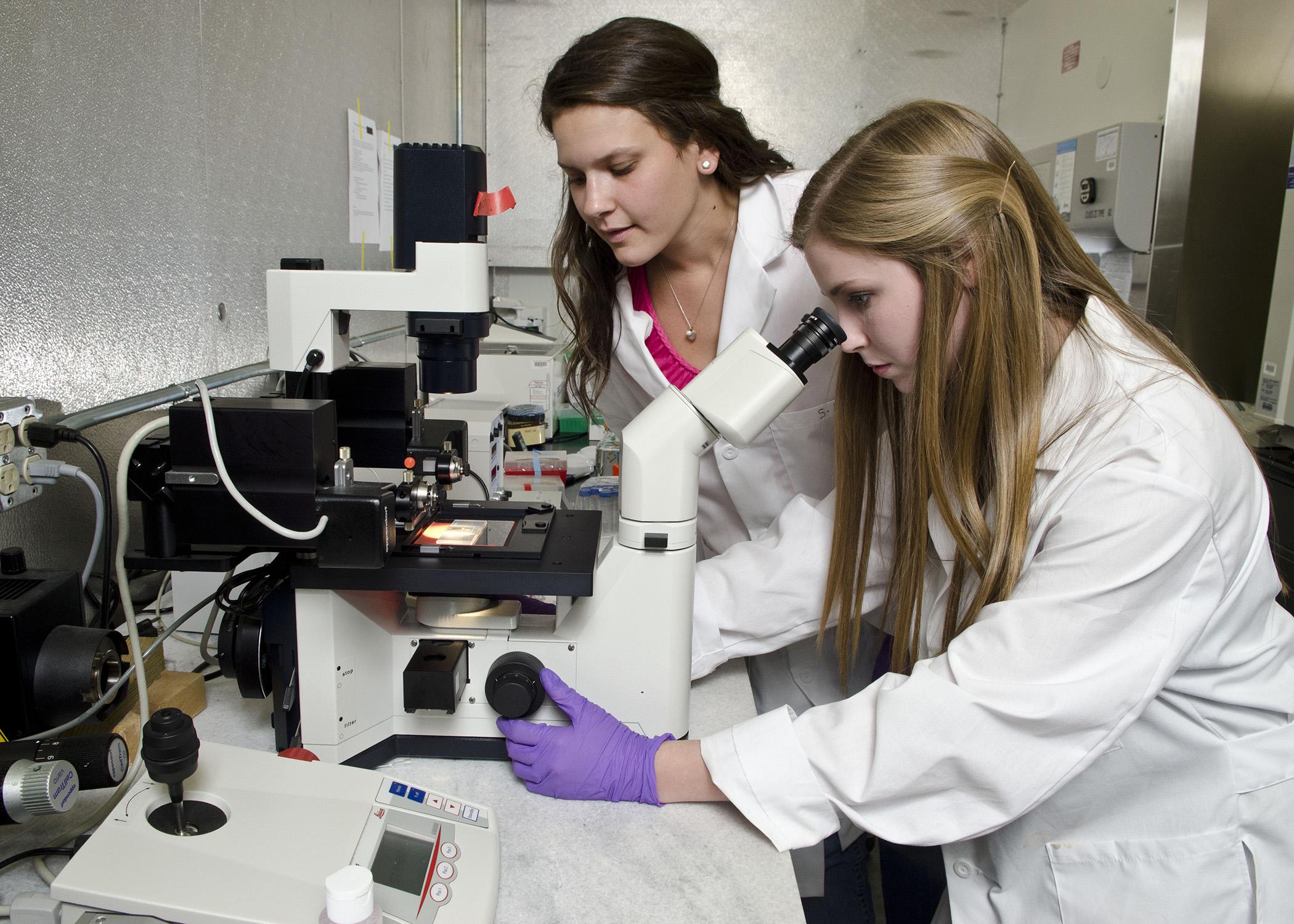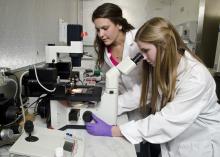Information Possibly Outdated
The information presented on this page was originally released on July 26, 2013. It may not be outdated, but please search our site for more current information. If you plan to quote or reference this information in a publication, please check with the Extension specialist or author before proceeding.
Young researchers study reproductive challenges
MISSISSIPPI STATE -- Their classmates may be taking the summer off, but two undergraduate students at Mississippi State University are spending long hours in a laboratory conducting studies that would challenge seasoned researchers.
Their supervisor, Erdogan Memili, is not surprised. He nominated Alexis Parisi and Kate Thompson for National Science Foundation research programs for elite undergraduates.
“Students like Alexis and Kate, with their motivation for research, will be pioneers in science,” said Memili, an associate professor in animal and dairy science. “They will help shape the way scientists address issues in reproduction.”
Parisi graduated from Lafayette High School in Oxford in 2009 and plans to finish her bachelor’s degree in animal and dairy science in December. She is a fellow in the NSF Research Experiences for Undergraduates in Computational Biology, directed by Andy Perkins of MSU’s Department of Computer Science and Engineering.
Thompson, a native of Picayune, is a 2011 graduate of the Mississippi School for Mathematics and Science. Majoring in biochemistry with a minor in business administration, Thompson is taking part in the NSF Undergraduate Research and Mentoring program in functional genomics.
Memili, a researcher with the Mississippi Agricultural and Forestry Experiment Station, said the students are getting experience working with a variety of scientists across campus, including the College of Veterinary Medicine.
“We are both working on different challenges to improve reproduction in mammals,” Parisi said. “My efforts focus on improving bulls’ sperm viability during the freezing process.”
Although the process for freezing sperm for artificial insemination has been around for decades, Parisi said she expects to improve viability of the stored sperm, thereby increasing animal production and lowering costs.
“I’m using antioxidants to strengthen the sperm and protect them from damage during the freezing process,” she said. “The use of antioxidants has exploded in recent years to address concerns such as aging and fertility.”
Thompson is investigating a variety of sperm-borne micro-ribonucleic acids, or miRNA, and their different impacts on sperm.
“Both of us use computational biology or software programs that predict and illustrate the biological processes we are studying,” Thompson said.
Both students expressed long-term plans to pursue doctorates.
“The miRNAs target certain genes and affect them differently. We are seeing that in addition the genetic material, sperm also provide gene products, such as RNAs and proteins to the egg, which most people do not realize,” Thompson said. “As I examine the miRNAs that have never been studied, I expect to see their roles in embryonic development. These findings will help us understand early mammalian development better, predict fertility and aid in the development of pharmaceutical treatments for infertility.”
While the young researchers will complete their NSF programs this summer, their research projects will continue. They will present their findings at national and international scientific conferences and publish the new information in scientific journals.


